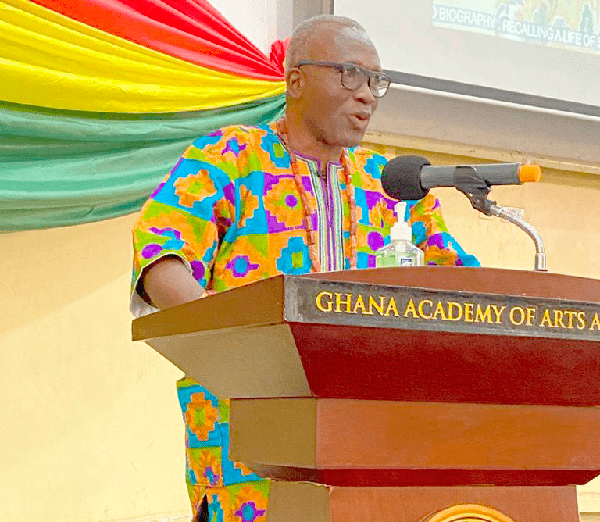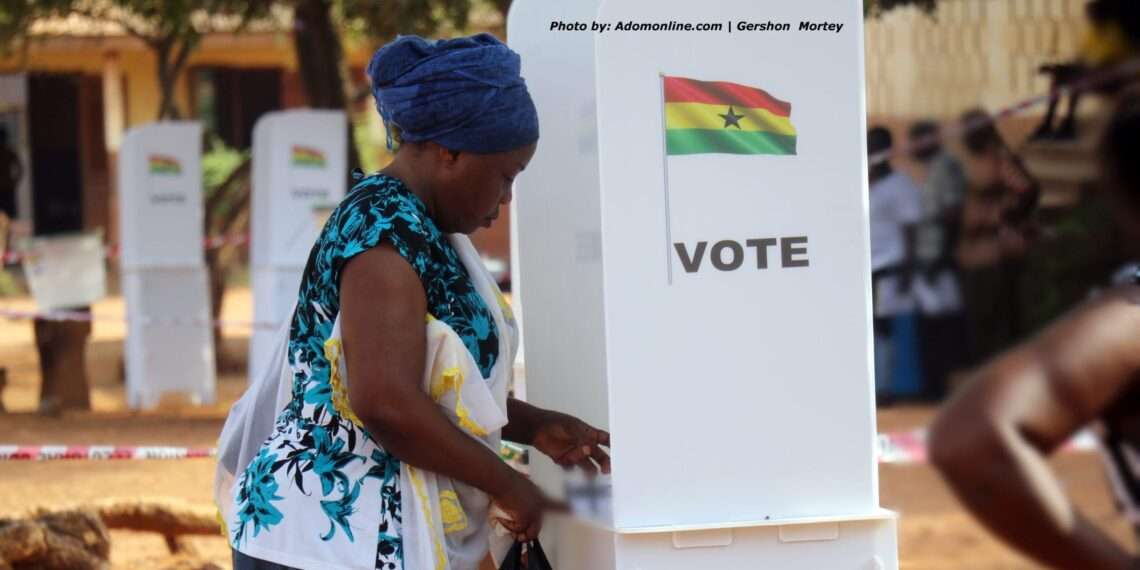The Electoral Commission of Ghana has proposed significant changes ahead of the 2024 general elections, sparking both support and opposition from various stakeholders.
The proposed reforms include shifting the election date from December 7, 2024, to November 7, 2024, and replacing the long-standing use of indelible ink with biometric verification for voter identification.
Even though the ruling New Patriotic Party has remained silent on the proposed reforms, the opposition National Democratic Congress has openly rejected the changes put forth by the Electoral Commission.
This divergence of opinions has set the stage for a heated political discourse in the lead-up to the 2024 elections with the opposition National Democratic Congress calling on the Electoral Commission to focus on implementing measures that would enhance free, fair, transparent and peaceful elections rather than imposing reforms.
While the reforms by the Electoral Commission aim to streamline the electoral process, one cannot ignore the concerns that have arisen regarding the potential implications and the need for comprehensive education and acceptance from the electorate.
Professor Joseph Atsu Ayee, a distinguished political scientist and Vice President of the Arts Section of the Ghana Academy of Arts and Sciences, weighed in on the proposed reforms, emphasizing the importance of garnering buy-in from major stakeholders for successful implementation.
Professor Ayee underscored the critical nature of securing buy-in from major stakeholders, particularly in the context of elections that are historically contentious.
Expressing reservations about the proposed election date change, Professor Ayee noted the proximity of December 7 to the holiday season and the potential challenges it poses, especially in the event of a run-off.
He emphasized the need for the Electoral Commission of Ghana to engage in very thorough education.
“Reforms are about change, they are about the way you do things and they’re about getting buy-in from major stakeholders. If the major stakeholders like the change, go along with it, particularly in elections, which are always contentious in this country and elsewhere: Even in the US, elections are contentious, so I think that the most prudent way of doing things is to get buy-in and make the change.
“I myself don’t like the December 7th one, because it is too close, if you have a run-off it becomes a problem and December is always a very short month, and to have elections in December even though we have done that in the past 31 years. We should change. I would say that reform with the agreement of major stakeholders is the best”
Professor Joseph Atsu Ayee

Addressing the Electoral Commission’s proposal to replace the use of indelible ink with biometric verification, the former Head of the Political Science Department of the University of Ghana, Legon, Professor Ayee further highlighted the necessity of education on the ground and the cooperation of political parties in disseminating information to their constituents.
He underscored the need for the Electoral Commission to work diligently to educate the public, stressing the importance of the electorate’s understanding and acceptance of the changes.
Moreover, Professor Ayee called for flexibility from the Electoral Commission, cautioning against perceived inflexibility that could disrupt the electoral process.
According to the revered Political Scientist, it is imperative for the Electoral Commission of Ghana to prioritize building consensus and cooperation among its stakeholders to ensure a peaceful electoral process ahead of the December 7, 2024, general elections.
“I think that in institution building or making institutions stronger, you also need to become more flexible and to take account of the views of your major stakeholders so that you don’t rock the boat. We need everybody, within the next 10 months, we need everybody so that the boat is not rocked so that everybody will accept the outcome of the elections. The outcome should not be contentious as to create chaos in this country”
Professor Joseph Atsu Ayee
With less than 10 months until the elections, it is therefore important for the Electoral Commission of Ghana to work in hand with the various stakeholders, particularly the two main political parties in the country to build consensus on its major reforms to avert any rancorous division ahead of the December polls.
There is one thing which is certain, that after all is said and done, Ghana cannot risk jeopardizing its democracy on the altar of electoral reforms or political expediency.
READ ALSO: Sammy Gyamfi Criticizes Kofi Bentil’s Defense Of Bawumia: Accuses VEEP of Economic Mismanagement



















